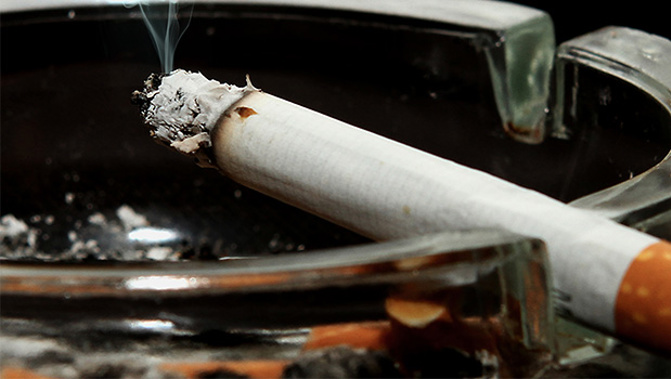
A link has been drawn between an overwhelming spike in dairy robberies targeting cigarettes and New Zealand's tobacco tax hikes.
A paper published in the Safer Communities journal this month supports the claim that tax hikes contributed to a spike in aggravated tobacco-related crime across the country in 2016 and 2017.
As tobacco became increasingly unaffordable, it was stolen for personal use or to supply the black market, the paper said.
It left shop owners traumatised and injured. Physical injuries ranged from minor scratches to a fractured eye socket and a broken jaw, the paper said.
A Harlston Superette worker had surgery on her hand after falling victim to a violent attack in October 2017.
The Mt Albert store was robbed at knifepoint.
A shop assistant was attacked with a machete, suffered a cut hand and required surgery at Middlemore Hospital.
Around $600 in cash was stolen from the till and a large quantity of cigarettes was taken.
The police said witnesses saw two males rob the dairy.
This was one of a raft of aggravated robberies at Auckland dairies and service stations that week alone, reflecting the extent of the problem at the time.
By 2018, tobacco tax hikes meant the price of cigarettes was among the highest in the world, relative to income.
In 2016 a pack of 20 average brand cigarettes cost $23. By December 2018, the same pack cost $27.65 and by March 2019 the price had reached $30.
The number of reported store robberies skyrocketed from 41 in 2015 to 136 in 2016, and 200 in 2017 before plummeting back under 100 in 2018.
Dairies were the primary target, specifically in lower socioeconomic areas and over the winter months. The risk of robbery was highest on Saturday, Sunday and Monday.
"August was the worst month for the crimes," said lead author and director of Centre of Research Excellence: Indigenous Sovereignty & Smoking, Marewa Glover.
"This supports the argument that the price was a cause because people can least afford to smoke when other costs of living go up, as they do in winter.
"The Government must acknowledge that some policies, though intended for good, sometimes have unintended negative effects, such as increasing crime."
The paper suggests evidence that high taxes on tobacco products stimulates quitting is not evident in New Zealand.
"The inequity in smoking prevalence between the least deprived and most deprived groups is widening.
"Indigenous people with disproportionately higher smoking rates are especially at higher risk of policy-related harm."
The report said it could not definitively establish if the increase in tobacco-related robberies was caused by the pricing strategy.
This is because robberies "apparently dropped off" in 2018 but cigarette prices continued to rise.
The paper suggests encouraging smokers to switch to vaping as a better alternative to tobacco tax.
It would "trigger a rapid reduction in smoking prevalence", especially among the lowest income groups, it suggested.
Take your Radio, Podcasts and Music with you









